Do I have to certify my farm?
The opportunity to run your own business and be your own boss is full of appeal. Farming is a great way to make your own hours, and approach life on your terms. So when someone tells you to follow rules and regulations, it’s not always an easy thing to accept.
Although certification might seem like a lot of work, the benefits outweigh the hassle!
Why certification is important to your farm
The most important benefit to being certified is access to certain markets. For example, the Good Agricultural Practices (see below) certification often means a farmer can sell to groceries or other large-scale consumer markets. Without the Good Agricultural Practices certification, a farmer can rarely expand beyond private or food service buyers.
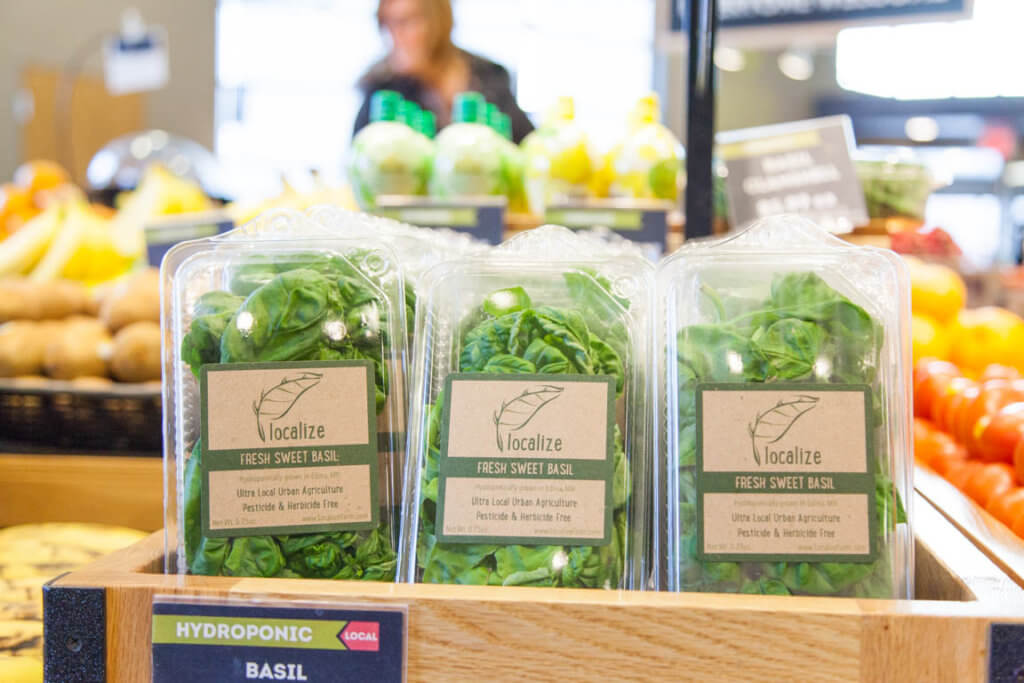
Even if a grocery or other client doesn’t explicitly ask for certification, it might affect your reputation and re-purchase rates with your existing customers.
What types of certification are there?
Certification is a broad term containing a number of different vetting processes that are provided by state, federal, and private organizations. These processes usually have the aim of regulating or safeguarding particular industries from legal liability or commercial monopolies.
For farms, certification will often focus on ensuring crops are safe to eat, pesticides are applied correctly, or that a farm won’t pose a safety risk to water or living conditions of nearby communities.
We’ll go over some examples of certification, the pros/cons, and exactly how optional each certification is for farmers at large. Here are some examples of common certifications that new farmers should consider pursuing:
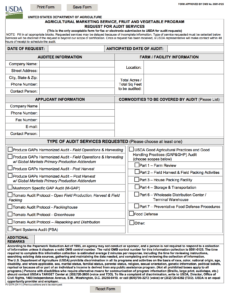
Requesting a GAP audit is as easy as filling out a form!
Good Agricultural Practices (GAP)
The Good Agricultural Practices is a voluntary audit that most large groceries and food distributors require before buying produce from a farmer.
Pros: The GAP certification is a required step for selling produce to most groceries. GAP certification means pursuing commercial markets, more sales, and more opportunity.
Cons: Administered by third-party certifiers, there may be a waiting process to reach certification. If your farm plan will rely upon commercial produce sales to remain afloat, pursuing GAP as soon as possible is essential.
GAP is necessary for any farm looking to expand to commercial buyers. While many smaller or hobby farms can get away with only selling to small or private buyers, we encourage any farm hoping to increase their scale to get GAP certified.
Hazard Analysis and Critical Control Program (HACCP)
HACCP has its roots in World War II era quality control. To ensure bullets, beans, and bandages were reaching troops on the frontline in usable quality, a variety of regulation was implemented. Today, HACCP ensures that food quality starts with growers and retailers. HACCP certification, like GAP, evaluates the basic practices of a farmer.
Pros: HACCP certification is probably the most identifiable food certification process in the food industry at large. If you plan to ship or source your produce beyond the local market, HACCP will be required sooner or later. Like GAP, HACCP is a big gold star when expanding your growing operation.
Cons: Even more than GAP, HACCP is a very bureaucratic certification. The largest part of HACCP is to itemize and examine the most basic levels of your farm’s operations to ensure food safety. While the goal is noble, HACCP will likely be beyond the scope of necessary certification for most.
Check out this landing page for the comprehensive .pdf on implementing HACCP.

Organic Certification
We’ve written about the challenges of pursuing organic certification. Long story short, making your farm approachable and transparent to your local markets is much more important to local farm success than obtaining organic certification. Nonetheless, some farmers find that organic certification gives them a boost in their markets.
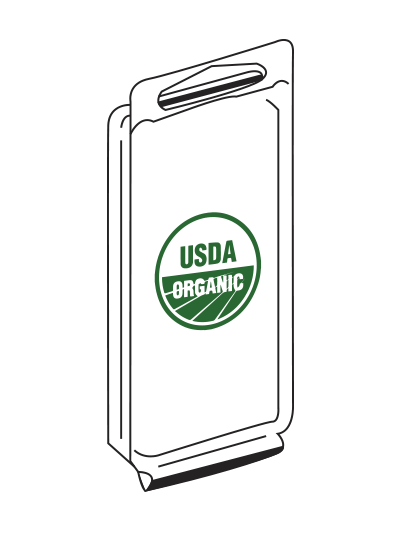 Pros: Let’s face it, organic is an attractive adjective to a lot of folks. Anyone can grow carrots and sell them at the local farmer’s market, but the certification process means only select growers can call themselves organic. Moreover, organic certification helps convey values like safety and cleanliness.
Pros: Let’s face it, organic is an attractive adjective to a lot of folks. Anyone can grow carrots and sell them at the local farmer’s market, but the certification process means only select growers can call themselves organic. Moreover, organic certification helps convey values like safety and cleanliness.
Cons: Organic certification can be tough to achieve as a hydroponic or aquaponic grower. Many certifiers see hydroponics as sterile and contrary to organic goals. Before deciding to get certification, first make sure that your markets need it and consider other options—like showcasing your sustainable and responsible practices—instead.
Visit this page for a quick breakdown from the USDA on how to become organically certified.
Applicator Licenses
Applicator licenses exist to ensure the proper application of regulated pesticides. While some farms work hard to rely only on over-the-counter pesticides and biological controls, others will require the safe application of pesticides.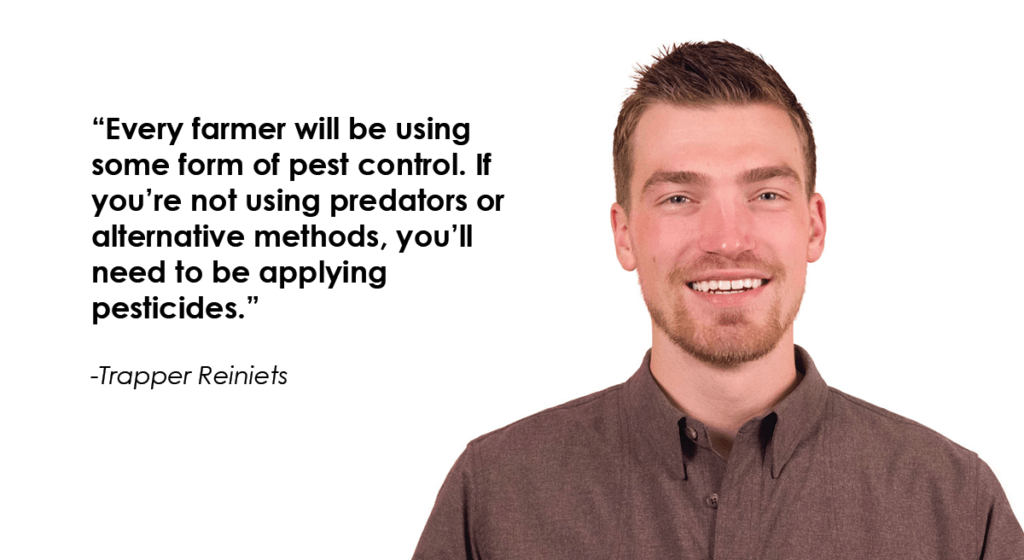
Pros: Completing Applicator certification allows you to apply pesticides to crops, saving precious yields from nasty critters. Consider an applicator license an investment in your future farm.
Cons: Like most certifications, Applicators licenses require time and money to earn. Extension offices often offer classes to help you on your way.
Check out this neat utility to find the extension office closest to you in your state.
The steps of certification
The certification process varies between organization. Some, like the Food & Drug Administration’s’ HACCP certification, can be a long process, with a government official investigating the safety hazards, talking to your growing team, and ensuring compliance with state and federal regulations. Whatever certification you’re pursuing, you can expect the procedure to follow something along these lines:
1) Research
This is where you find all the information about what you’ll need to pursue certification. Call your local FDA/EPA representative and ask questions about the process.
2) Application
The paperwork starts. You’ll officially announce the pursuit of the certification to the evaluating organization and begin scheduling interviews and auditing visits.
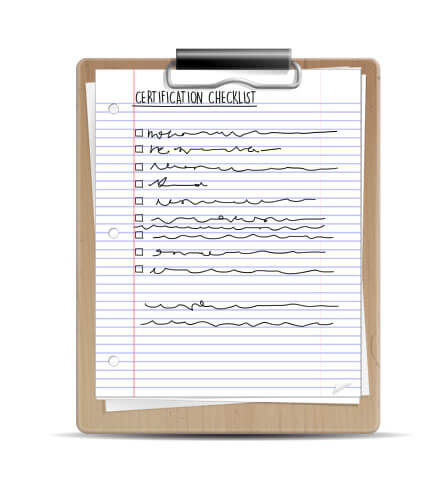 3) Compliance
3) Compliance
This step is where the certifying body will begin to evaluate your farm. Expect interviews, more paperwork, and visits to your farm.
4) Evaluation
Here is where the certifying body will evaluate your farm’s potential hazards and respond with a judgment on whether you pass or fail the evaluation. Many of these programs offer or enforce room for minor changes on a pass evaluation, so don’t sweat receiving less than a perfect grade.
5) Adjustment
You’ll need to make changes to fulfill the requirements of the auditing body. After doing so, contact the organization and request another audit.
Planning a farm?
Planning a farm can be overwhelming, and it’s easy to forget important steps. To get a roadmap of the entire process, check out the Ultimate Guide to Starting a Farm, an easy-to-navigate page for any aspiring farmer.


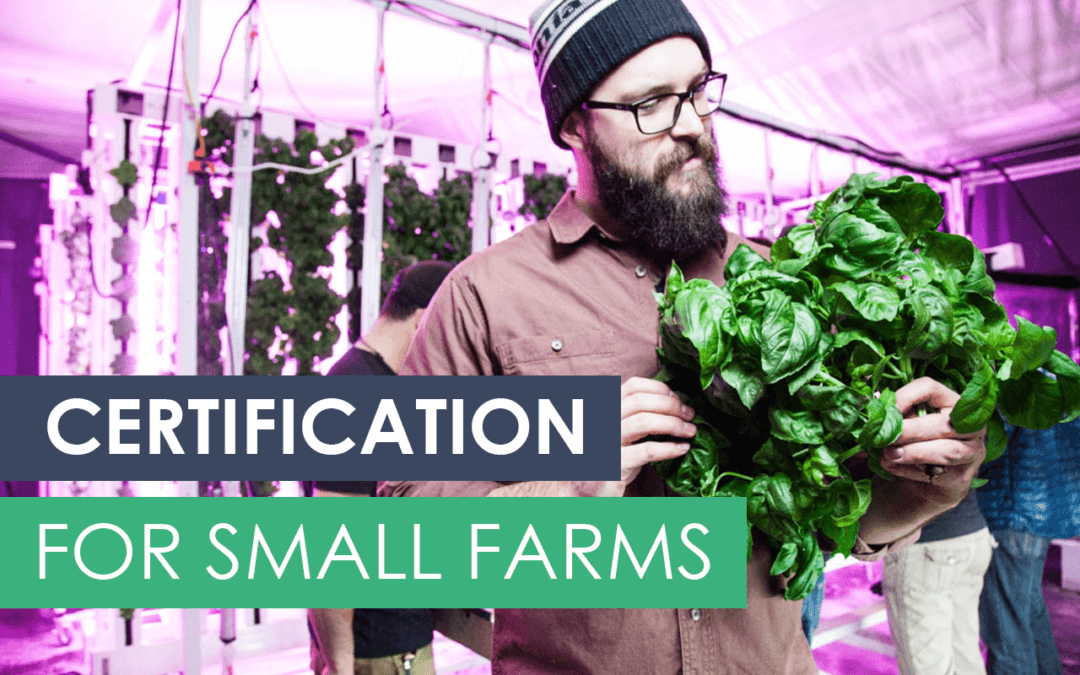
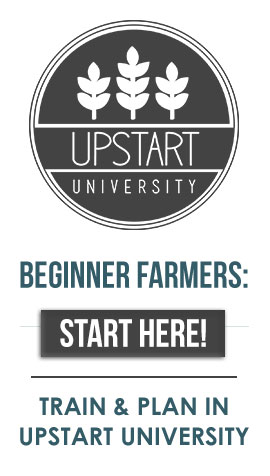
This is a good general article, but has some wrong information, such as the “fact” that certification is “Administered by local branches of the FDA”. It’s NOT, it’s administered by many of the same private certification agencies that certify you for USDA Organic Certification; and you have to pay them for this service. It’s fast, not slow.
Here’s some more accurate and complete information on Federal Food Safety GAP and HAACP certification: (https://www.friendlyaquaponics.com/food-safety/)from a farm that was the first aquaponics farm in the world to get Food Safety certified in 2009.
With Warm Aloha, Tim……….
Tim, thanks for the insight and good catch. Sounds like you’ve got some valuable experience with certification – great post on your site. Thanks for commenting!